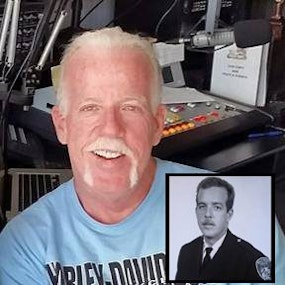PTSD or PTSI, according to an Artificial Intelligence program.
Almost everywhere I turn online people are talking about AI platforms like ChatGPT. And I wanted to find out for myself what it responds with when asked about current topics for Law Enforcement Officer, other First Responders and victims of crime.
So, I went to ChatGPT and asked it to write a blog post about PTSD for First Responders. The response is listed below.
PTSD or PTSI?
"PTSD, or post-traumatic stress disorder, is a mental health condition that can affect anyone who has experienced or witnessed a traumatic event. This includes first responders, such as police officers, firefighters, and paramedics, who are often exposed to traumatic events as part of their job.
Symptoms of PTSD can include flashbacks, nightmares, difficulty sleeping, and avoidance of people or places associated with the traumatic event. These symptoms can have a significant impact on a person's daily life and can lead to other mental health issues, such as depression or substance abuse.
First responders are at a higher risk of developing PTSD due to the nature of their work. They may witness or be involved in life-threatening situations, accidents, and other traumatic events on a regular basis. This exposure to trauma can take a toll on their mental health, and it is important for first responders to be aware of the signs of PTSD and to seek help if needed.
There are several ways that first responders can cope with and manage their PTSD symptoms. One important step is to seek support from a mental health professional, such as a therapist or counselor. Therapy can help individuals learn coping strategies and work through their feelings about the traumatic event.
It is also important for first responders to take care of their physical health, as this can have a positive impact on their mental health. This may include getting enough sleep, exercising regularly, and eating a healthy diet.
PTSD or PTSI?
First responders can also find support from their colleagues and supervisors. Many organizations have support programs in place for employees who have experienced trauma. These programs can provide a safe and supportive space for first responders to talk about their experiences and get the help they need.
It is important to remember that seeking help for PTSD is not a sign of weakness. It takes courage and strength to acknowledge that you are struggling and to ask for help. If you are a first responder and are experiencing symptoms of PTSD, don't be afraid to reach out for support. There are resources available to help you manage your symptoms and live a healthy and fulfilling life." PTSD or PTSI?
While all of the above is true, I still am of the opinion that this Artificial Intelligence program is missing the human element. Especially when we are talking about topics like PTSI. It appears to spit out an almost encyclopedic response to anything I've input so far.
The one thing that I can wholeheartedly agree with them on is "you manage your symptoms and live a healthy and fulfilling life". That's not to say that I find fault in the rest of their response, it just lacks the human feel that I find so important.
PTSD or PTSI, according to an Artificial Intelligence program.





















